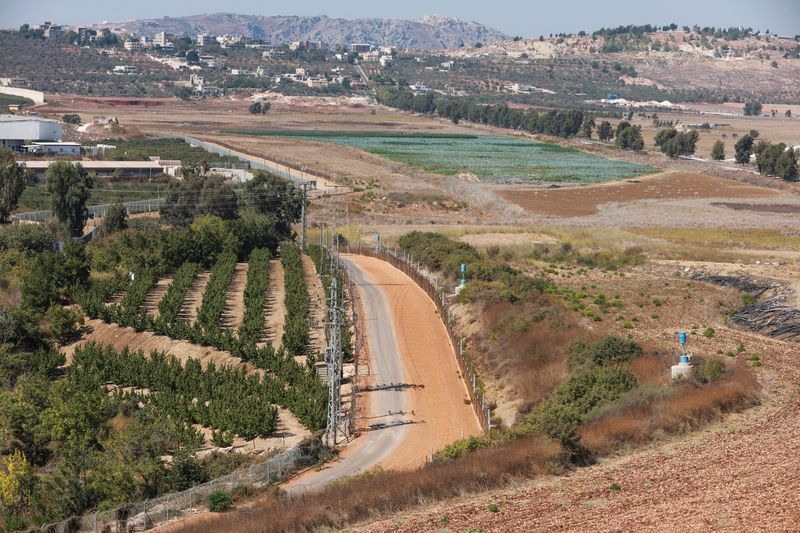
© Reuters. A general view shows the Lebanese-Israeli border as seen from the southern Lebanese village of Khiam, Lebanon October 11, 2022. REUTERS/Aziz Taher
BEIRUT (Reuters) -The U.S.-brokered deal delineating the maritime boundary between Israel and Lebanon is intended to be a lasting resolution to their longtime dispute, the draft seen by Reuters on Wednesday said.
It will enter into force once Lebanon and Israel send letters to the United States indicating their agreement, after which Washington will issue a notice to both officially announcing the deal is in place.
On the day it sends that notice, Lebanon and Israel will then simultaneously send identical coordinates to the United Nations laying out the location of the maritime boundary.
The deal represents the first significant diplomatic breakthrough between the two countries in years, but it remains relatively limited in scope and does not resolve the longstanding dispute over their land border.
It stipulates that a controversial line of buoys extending from that contested border would remain in place.
It said the parties to the deal would seek to resolve any further maritime differences through the United States, securing an ongoing guarantor role for Washington.
Israel, Lebanon and the United States all hailed the deal as a historic achievement on Tuesday.
Top Israeli ministers convened on Wednesday to give preliminary approval for the deal. Officials said they would likely submit it for a two-week parliamentary review, followed by the full Israeli cabinet convening for final approval, after which Washington could declare the deal in force.
Prime Minister Yair Lapid’s government wants the deal done soon but has denied that the Nov. 1 election is the deadline. Some officials cited imminent plans to extract at Israel’s Karish gas rig, others the fact that Lebanese President Michel Aoun steps down at month’s end.
“There’s a good chance that for months or maybe more there won’t be a president in Lebanon, and only the president can sign that kind of agreement,” Israeli Internal Security Minister Omer Barlev told Ynet Radio.
Source: Investing.com




























